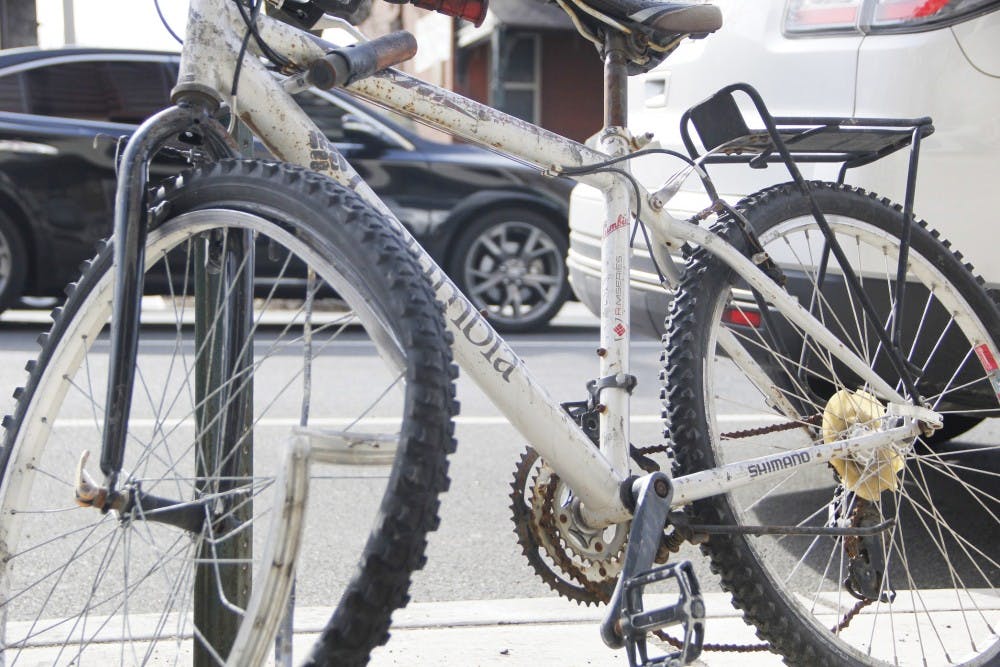During the spring semester of her junior year, Nursing senior Ana Quiroga woke up at 5 a.m. twice a week to bike across the city to Pennsylvania Hospital for her clinical studies.
Quiroga's early morning rides are common among Nursing students, who must spend 12-16 hours per week over the course of five semesters working at clinical sites scattered throughout the Philadelphia area. While some students are lucky enough to secure assignments on campus, others must find a way to make the nearly hour-long drive to the far locations.
Penn offers a number of options to offset the associated transportation costs, but it does not have an official reimbursement in place for its Nursing students.
For Quiroga — a member of Penn First, the University's largest first-generation, low-income student group — the lack of an overall system meant that she could only choose clinical sites within walking or biking distance from campus.
“They always say, “Choose topics that interest you,” but in reality I’m just choosing places that I can get to,” Quiroga said.
This semester Penn addressed a portion of transportation costs by explicitly allowing some Nursing students to pick up free SEPTA tokens at the Netter Center. Associate Director Joann Weeks of the Netter Center wrote in an email to The Daily Pennsylvanian that only students whose clinical locations are a part of Netter Center-related programs can benefit from the free tokens.
"The Netter Center only supplies tokens to students participating in Netter Center-related programs, mostly at local public schools in West Philadelphia," Weeks wrote.
Nursing senior Marjorie Lorraine said she was notified of the free tokens in an email from a Nursing lecturer after asking about reimbursement for traveling to a clinical site a half-hour from campus.
Quiroga noted that she only recently learned of the token program through a GroupMe chat with friends.
“The University never really pushed it. They’re not public about it, I don’t think they announced it to everyone,” she said. “Especially transferring into nursing, I was never aware of all these resources or who to reach out to.”
Nursing students can also use the Penn’s Enterprise Car Share system, which is fully reimbursed.
Through this system, a nursing student, who must be at least 21 and have a driver's license, can drive their clinical group to their location.
Nursing senior Mateo Fortes said the driver must undergo a background check, noting that only some locations make drivers eligible for reimbursement.
Fortes, who is a designated driver this semester, explained that serving as the designated driver is time-consuming. He had to travel downtown to get his initial rental car, and this month, walked to 47th and Baltimore just to find the only rental minivan available that could accommodate his six-person clinical group.
“It’s a lot of responsibility. I’m a driver, I’ve been licensed since I was 16, but here [in Philly] I’m hardly ever driving so it’s very stressful,” Fortes said. “I really do wish that Penn would [reimburse] especially for sites located along easily accessible routes, like the Broad Street Line, or the trolleys. It’s cheaper and it would be less stress on one individual driver.”
Uber takes students to their locations more quickly and can act as a safer option during night hours, but is pricier and not reimbursed. Lorraine took turns with her clinical classmates paying $20 a week for rides to McAuley Convent.
Penn First students do not get any extra priority for clinical sites close to campus. Quiroga said she believed such a system could potentially incite pushback from non-FGLI students and parents.
Paul Richards, director of Communications for Student Registration and Financial Services, said that students should consider talking to an SFRS counselor and taking loans on the transportation costs, which are not covered under the SFRS's general cost of attendance. In order to do so, students must provide some "documentation of the expense," such as a receipt from a bus or Uber, to demonstrate how much they are asking for.
Students not on financial aid are eligible for these loan programs.
"This is something we hope to work with the nursing school on going forward," Richards said. "It’s something administrators are aware of and talking about. It’s helpful when students raise these issues, because it helps us see the additional costs that are out there that have not been historically covered."









